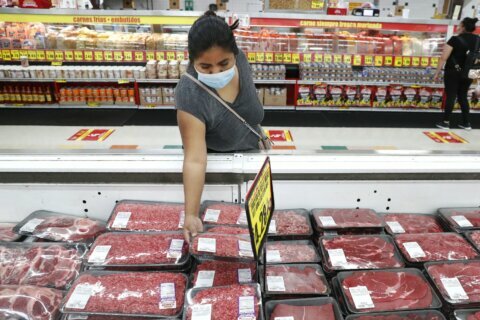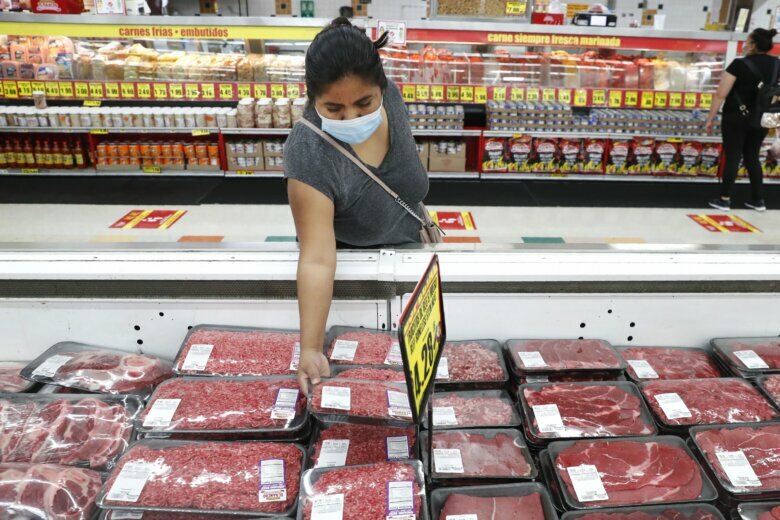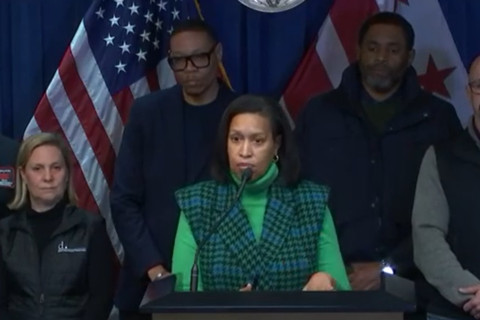
For years, advocacy groups have been struggling to get more grocery stores opened up east of the Anacostia River.
There have been protests and demonstrations, tax incentives, and all sorts of other ways of persuasion.
A report that came out last year chronicled the lack of progress, but in an unusual move, the group behind it has offered an update to it this year.
Things, it seems, are starting to pick up in the right direction.
“D.C. as done a lot of stuff,” said Beverley Wheeler, director of D.C. Hunger Solutions. “We really have made a difference.”
From 2010 to 2020, the city had actually lost grocery stores east of the river. Now, two additional stores are slated to open soon (A Good Foods Market in Ward 8, and a Lidl in Ward 7) and a third is opening in the area later.
But that doesn’t mean Wheeler’s group feels its mission is accomplished. Not even close.
“Oh absolutely not where we want to be,” she said, pointing out that the three stores east of the river pales in comparison to the 30 combined just in Wards 6 and 3. That’s 10 times as many stores for a population that’s only about 15% bigger.
“If you’re rich you’re good, if you’re white you’re good,” she said. “If you’re poor, you’re hmmm, if you’re black, you’re hmmm.”
Wheeler noted that huge chunks of city’s population on food assistance programs, such as SNAP and WIC, live in Wards 7 and 8.
“SNAP is one of the best ways to get people out of poverty,” argued Wheeler, who is hopeful DC will increase SNAP benefits for residents.
“The easiest places to use SNAP and WIC are at a grocery store. And if you don’t have a grocery store then you can’t use those benefits,” Wheeler said.
“Fifty percent of the individuals who qualify or are on WIC live in Wards 7 and 8. They only have three grocery stores. We are number one in the nation for senior food insecurity. Number one. Our seniors can’t to a grocery store because they don’t have one.”
That gets to her main point: It’s not necessarily about drawing in the biggest grocery stores in the region. Instead, drawing the right store with the right footprint will go a long way.
“We need some access,” she said.
To continue bringing about more access, Wheeler said her group is pushing for continued funding of the Nourish D.C. program, which invests in small businesses that help fulfill nutritional needs.
Previous tax incentives, which she notes were crafted in good faith but didn’t work as well as intended, also should be amended she said.
She expressed support for an idea being considered by the council that would offer someone opening a brand new grocery store east of the river a license to sell liquor on top of beer and wine. For now, that proposal is still more of an idea than anything else though.
“We want economic development as well,” said Wheeler. “We want people to be able to have jobs so that they don’t have to use federal nutrition programs.”
In the meantime, she also hopes the city will consider expanding the amount of funding SNAP and WIC beneficiaries receive, so they can use them at those new stores that are coming.
“It won’t help us if we get all these grocery stores and people still don’t have money to spend anything on,” said Wheeler.









